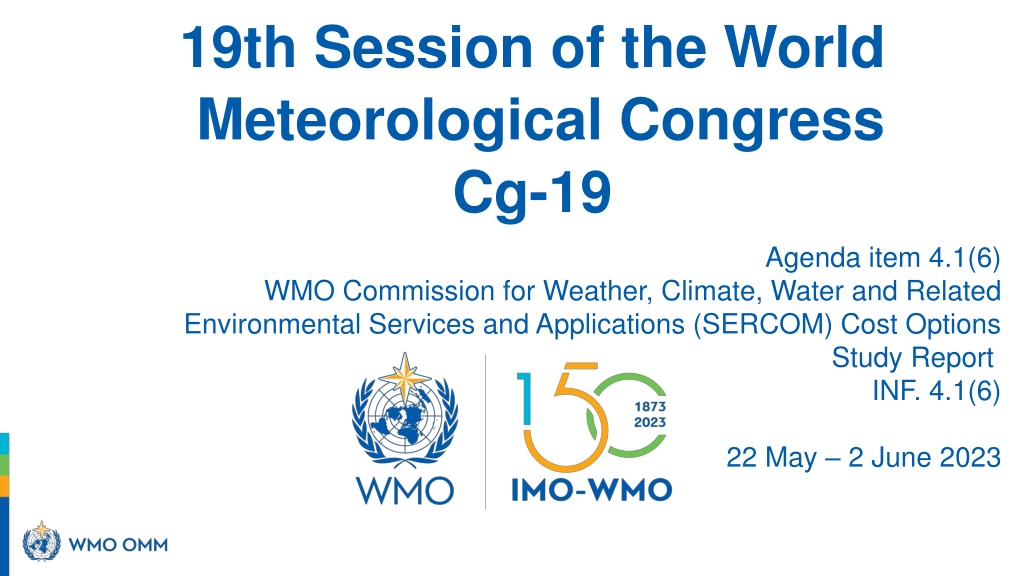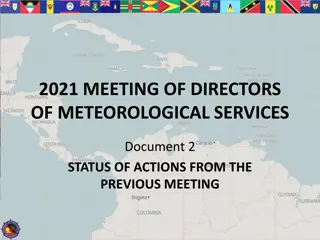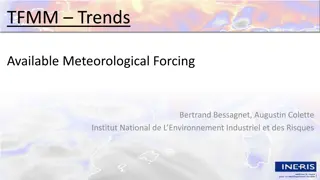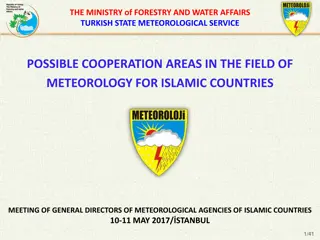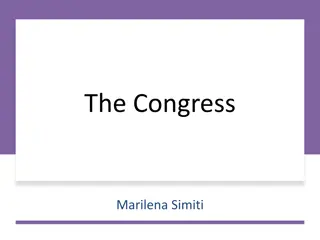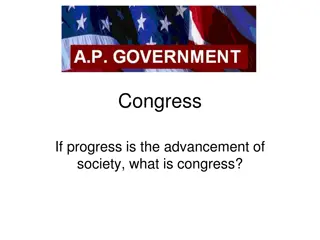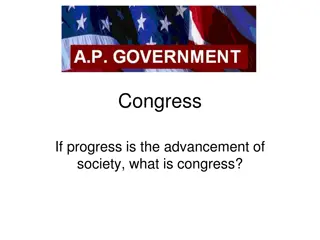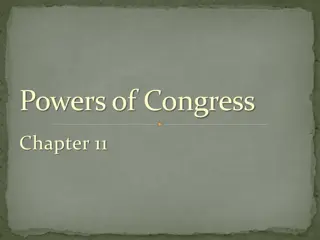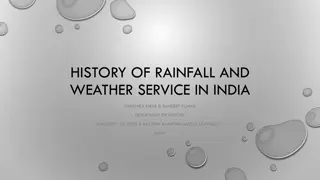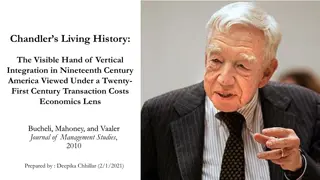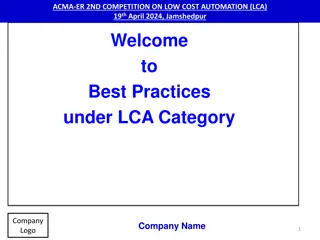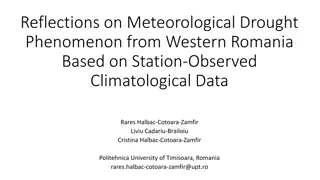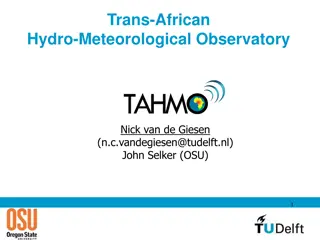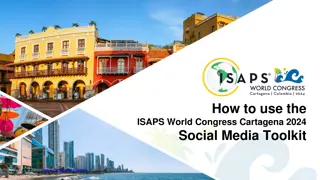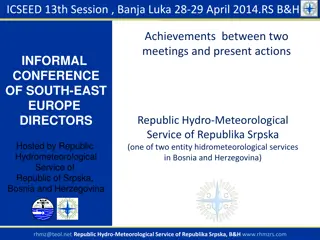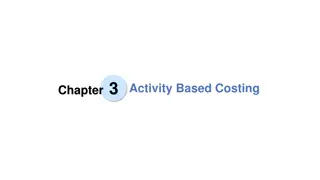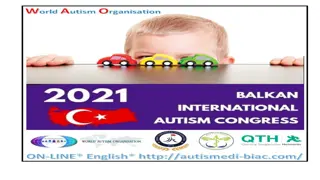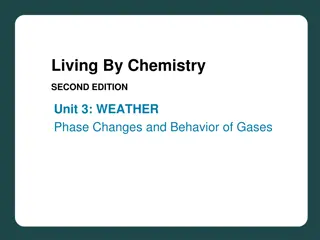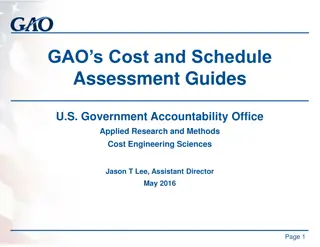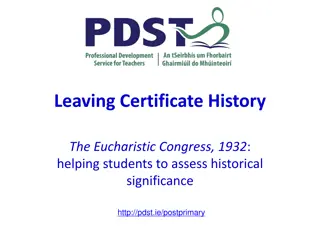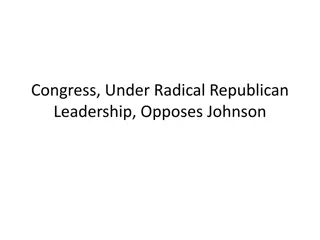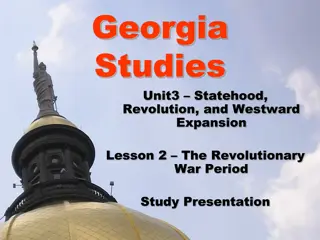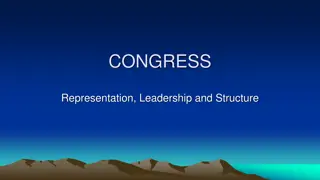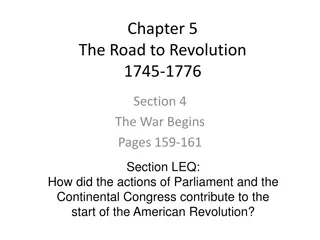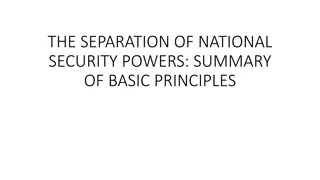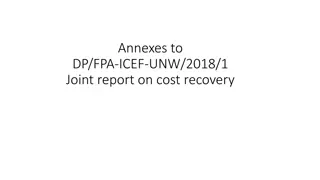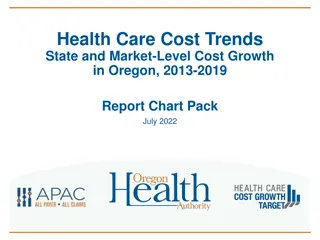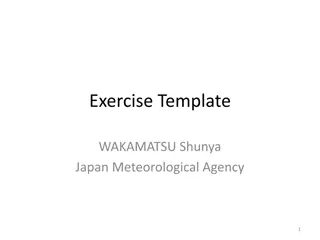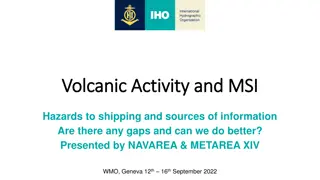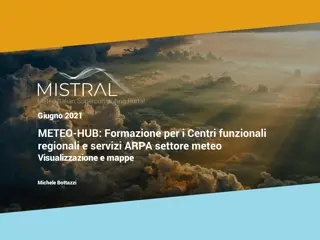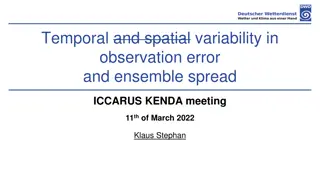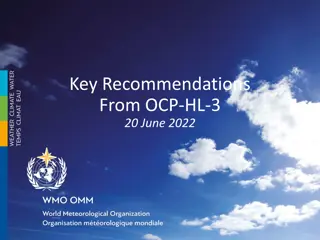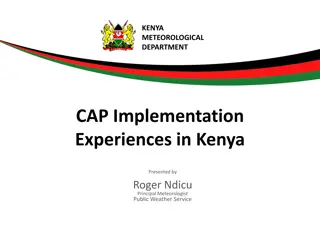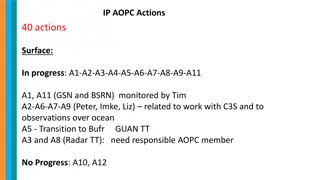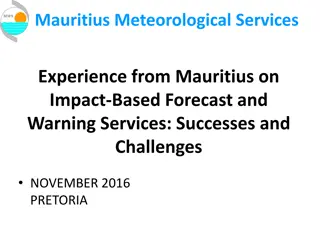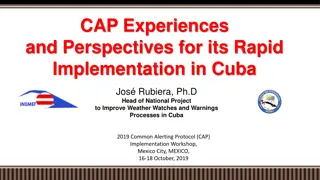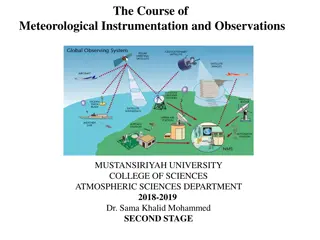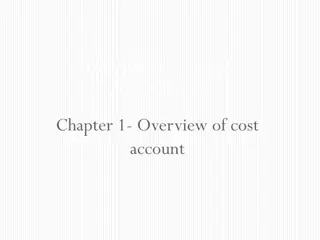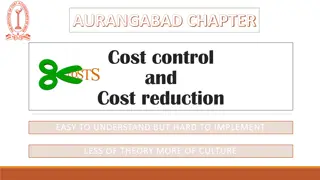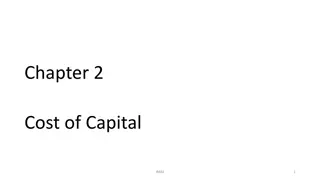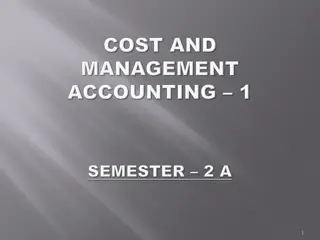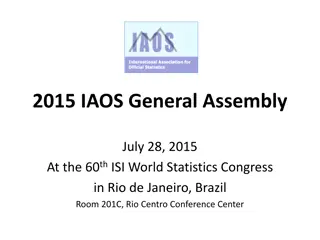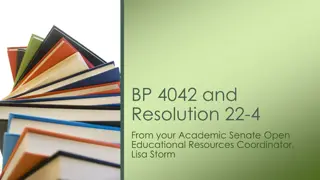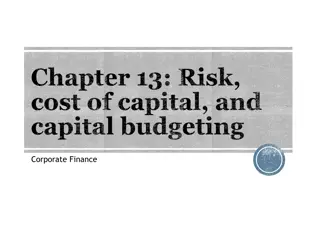19th Session of the World Meteorological Congress - Cost Options Study Report
The report discusses cost recovery processes for marine services, focusing on weather, climate, water, and related environmental services. It includes findings from interviews conducted with coastal states, METAREA Coordinators, industry stakeholders, and IGOs. The investigation report was endorsed at SERCOM-2 and EC-76, highlighting the importance of collaboration with IMO and providing recommendations for consideration at Cg-19.
Download Presentation

Please find below an Image/Link to download the presentation.
The content on the website is provided AS IS for your information and personal use only. It may not be sold, licensed, or shared on other websites without obtaining consent from the author. Download presentation by click this link. If you encounter any issues during the download, it is possible that the publisher has removed the file from their server.
E N D
Presentation Transcript
19th Session of the World Meteorological Congress Cg-19 Agenda item 4.1(6) WMO Commission for Weather, Climate, Water and Related Environmental Services and Applications (SERCOM) Cost Options Study Report INF. 4.1(6) 22 May 2 June 2023
Background 1. Cg-17 (general summary paragraph 3.1.132) requested co-president of JCOMM and WMO Secretary-General, in consultation with the IMO, to consider cost recovery processes for marine services; 2. At Cg-18 Resolution 30 (Cg-18 Resolution 30) was adopted - further investigation was required together with the provision of advice to Members, on cost option models that could be considered; 3. Congress requested consultations with relevant bodies, including IMO, and subsequent report to the EC with recommendations to be presented for consideration at Cg-19. 2
Process 1. Total of 28 interviews conducted between march and June 2022; 2. Breakdown: 3. 24 coastal states, of which 10 were METAREA Coordinators 4. 2 IGOs 5. 2 industry stakeholder organizations 6. 12 interview requests for which no reply received 7. IMO was consulted in the process per request from Congress 8. METAREA Coordinator costs not addressed; currently subject to separate IMO output 9. Cost Options investigation report discussed and fully endorsed at SERCOM-2 and EC-76 3
The numbers of WMO Members interviewed in each Regional Association 4
SOLAS 1974, 2000 amendments extract, Chapter V, regulation 5 2. In particular, Contracting Governments undertake to carry out, in co- operation, the following meteorological arrangements: .1 to warn ships of gales, storms and tropical cyclones by the issue of information in text and, as far as practicable graphic form, using the appropriate shore-based facilities for terrestrial and space radiocommunications services. .2 to issue, at least twice daily, by terrestrial and space radiocommunication services, as appropriate, weather information suitable for shipping containing data, analyses, warnings and forecasts of weather, waves and ice. Such information shall be transmitted in text and, as far as practicable, graphic form including meteorological analysis and prognosis charts transmitted by facsimile or in digital form for reconstitution on board the ship's data processing system .8 to arrange for the reception and transmission of weather messages from and to ships, using the appropriate shore-based facilities for terrestrial and space radiocommunications services. 5
Preamble 1. The Preamble to the recommendations was added in response to a question from Mozambique during EC-76. 2. The Preamble clarifies the role and perspective of the IMO and the work being undertaken by the IMO in respect to cost implications for MSI and search and rescue information providers as a result of the recognition of additional mobile satellite service providers for use in the GMDSS. 3. WMO participates in relevant IMO meetings. 4. The Preamble highlights the views expressed by SOLAS Contracting Governments with respects to costs. 5. It also notes that only Contracting Governments can propose amendments to SOLAS. 6
Draft Resolution Invites WMO Members to consider the recommendations as contained in the annex to the present draft resolution. Recommendations Complete regionally focused cost-benefit analysis studies. Consider review of governments legislation and policies. Review staffing levels and recruitment policies. Develop best practice guidance document. Consider what levels of support are appropriate for training and development. Undertaken customer needs and requirements surveys. Consider governments funding approaches to best support MMSs. 7
Thank you wmo.int
Long-Rang Identification and Tracking (LRIT) LRIT provides for global identification and tracking of ships to enhance security and marine environmental protection. Obligations of ships to transmit and rights of SOLAS Contracting Governments and SAR services to receive information is regulated in SOLAS. Aspects of the LRIT system are reviewed and audited by a Coordinator on behalf of all SOLAS Contracting Governments. Flag states collect data from LRIT system and sell it to Coastal or Port states through established financial mechanisms. 9
Long-Rang Identification and Tracking (LRIT) (cont.) established to oversee and audit the processes, costs charged to participating states. requests, and costs of charging, oversight and auditing processes are higher than revenue generated. International organization Low level of information However, oversight and auditing costs remained; despite not charging or having organizations in place to manage cost recovery, States still obliged to fund oversight and audit service. Many states stopped charging for data to remove costs. Many potential similarities for charging for provision of marine meteorological services including highlighted negative cost benefits. 10
